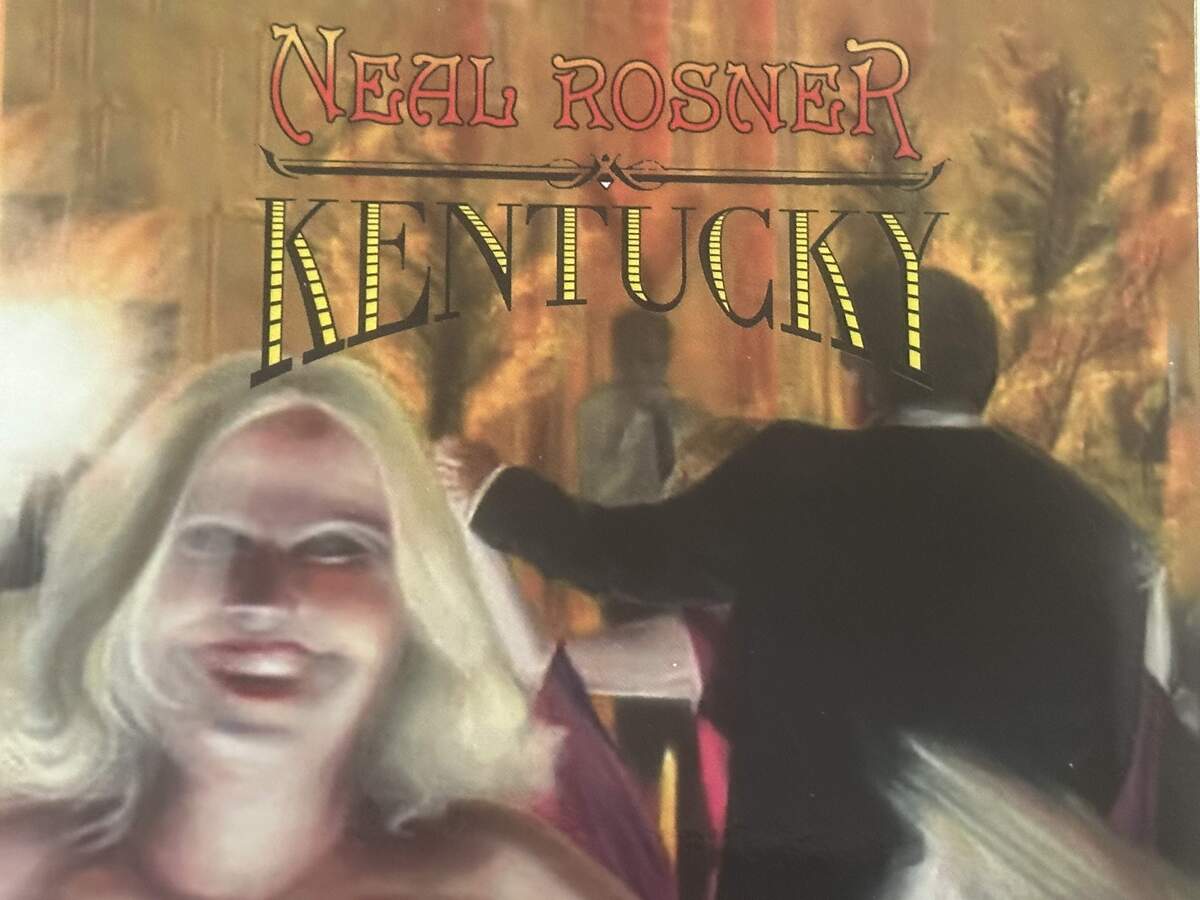Neal Rosner | Interview | New Album, ‘Kentucky’
Neal Rosner’s latest album, ‘Kentucky,’ is a sonic exploration of his 12-year residency in Madisonville, Kentucky. Spanning from 1972 to 2023, the album’s 12 tracks demonstrate the artist’s ability to capture the essence of his experiences and emotions in a manner that is both personal and universal.
The album’s eclectic soundscapes are the result of a collaborative effort between Rosner and engineer Steve Baker, who worked together to craft a production that is both intimate and expansive. Rosner’s multifaceted talents as a musician are showcased throughout the album, as he plays keyboards, percussion, and vocals with precision and emotion that is truly remarkable.
The album’s thematic focus is on topics such as American history, politics, and spirituality. For example, ‘Micajah’ is a haunting exploration of the first serial killers in America, while ‘The Radical’ reenacts the SLA shootout in LA in 1974. ‘Red and Blue’ is a scathing critique of political divisions and the role of social media in shaping our perceptions of reality. ‘Le Cirque Des Enfants’ is a playful and imaginative tribute to the world of children’s circuses, while ‘What is God/ Seed of Abraham’ is a poignant exploration of our shared humanity.
The supporting cast of musicians includes Barb Rosner on backup vocals and spoken word, Alonzo Pennington and Boscoe France on guitar, and James Dillingham on guitar.
To support the release of ‘Kentucky,’ Rosner will be performing live with his prog-rock ensemble McLuhan in the Chicago area. This will be an opportunity to experience the album’s complex sounds and themes in a live setting, and to witness the artist’s unique ability to craft music that is both personal and universal.
Rosner was also a member of McLuhan, a groundbreaking group that defied traditional musical boundaries. The group was founded by David Wright, who composed most of the music and wrote the lyrics for their sole album, ‘Anomaly.’
McLuhan’s innovative approach emphasized experimental performances, incorporating unusual sound effects, instruments, and even old movie footage. The focus was on the medium rather than the content. Labels didn’t matter; it was about pushing the boundaries of what was considered “music.”
The Wise-Fools Pub in Chicago’s Lincoln Avenue neighborhood became McLuhan’s regular gig every Monday night, attracting a loyal local following. Their performances became increasingly tight, eventually leading to a contract with Brunswick Records.
McLuhan only existed for about 1-1.5 years before disbanding. They never had a chance to promote their album through live performances, as they were already working on their next project when ‘Anomaly’ was released in 1970. Although it received some obscure radio play, the album remained relatively unknown.
In recent years, ‘Anomaly’ has gained cult status, but it remains unreleased. Believe it or not, the band is still active today (2024). Founding members Neal Rosner (bass, vocals) and Paul Cohn (woodwinds) have reunited with other talented musicians to perform their album in its entirety, along with some classic 1970s rock songs at the Montrose Saloon in Chicago.
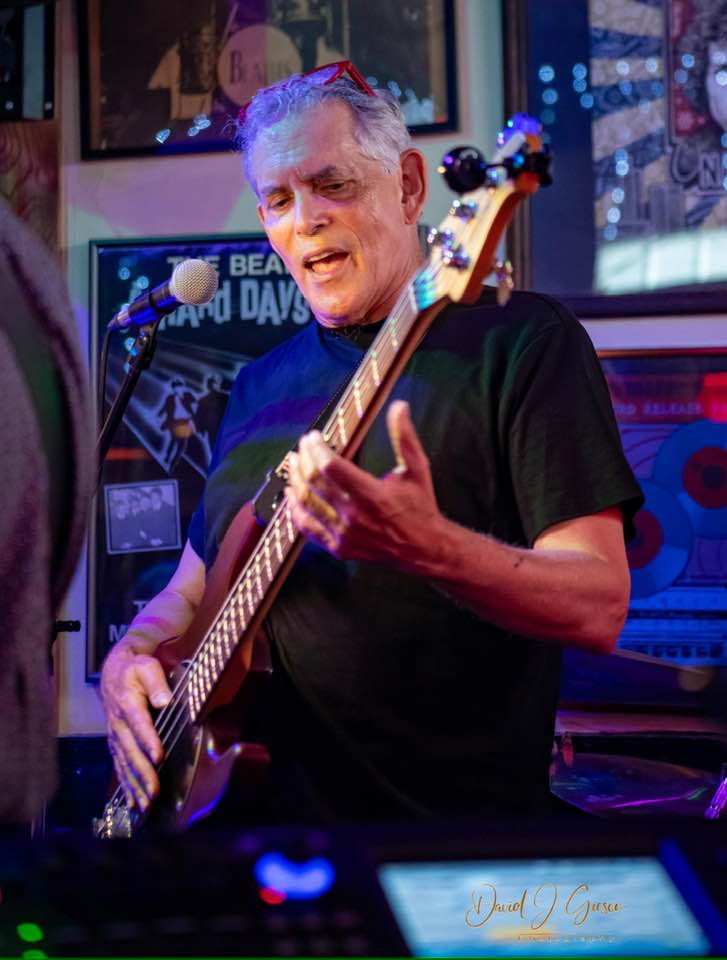
“This album is my love song to Kentucky”
It’s fantastic to have you. Tell us how did the new album ‘Kentucky’ come about?
Neal Rosner: My day job is as a radiologist. I had a job transfer from Chicago to Madisonville, KY, in 2011. At first, I felt like the biggest loser going to Kentucky, but it turned into a wonderful, life-changing experience for me—spiritually, emotionally, and financially. This album is my love song to Kentucky, my payback for the 12 years I lived there.
Can you reveal some of the details regarding the recording and production aspect of it?
I teamed up with Steve Baker, a local Madisonville, KY guy, an excellent engineer.
We worked on all of the songs. We became good friends and musical partners in a small studio with a big heart. I played most of the keyboard instruments, and Steve and I did the keyboard percussion. I also did the vocals and harmonies. We were fortunate to have terrific Kentucky guitarists, Alonzo Pennington and Boscoe France.
Would you say there’s a certain concept behind your album?
The concept is my love song to Madisonville, KY.
We met great people, and small towns are truly the best. People care for each other deeply, and it’s a beautiful thing. We joined a wonderful church, First Christian Church, where we made lifelong friends. It has become a loving second home to us.
Some songs are from the 70s, while you also have new ones. Do you approach songwriting any differently these days?
I approach songwriting in the same way over the years. Sometimes, I hear a riff and then develop the song like a puzzle fitting together, piece by piece. Other times, a beat serves as the foundation, and the song builds up from that rhythm. When I’ve written a song for a movie, I try to research the story behind the film. I feel as though I’ve been given a gift – I just hear it. This is also my antidepressant, anti-aging therapy.
I would love to discuss some history with you. Your band McLuhan was founded in Chicago, USA in 1969, where are you originally from? What was life like there in the 50s and 60s?
Born in Chicago on May 2, 1951. I was a child of the 1950s and 1960s, a time when everyone was liberal, hippie-wannabes. Drugs, sex, and rock ‘n’ roll were all the rage, but as a goal-oriented Jewish kid from the North Side of Chicago, we managed to stay out of too much trouble. I went to medical school, got married, had kids, got divorced, and remarried – the usual Midwestern story.
Throughout my life, I’ve always been passionate about music. I started playing in bands in 8th grade and have been doing so ever since. I’m an ear musician, which means I don’t read music at all – I just hear it.
Were you in another band before forming McLuhan?
My first band was The Acoustic, which I formed in 8th grade. We were terrible, but we had a lot of fun. The British Invasion of 1964 was a huge influence on me, and my heroes were The Beatles, The Dave Clark Five, The Searchers, The Animals, and The Kinks. In high school, I played in The Rysin Tydes and Something Else. We played local clubs, covering songs by The Beatles, Buddy Holly, The Kinks, and The Byrds. Unfortunately, there is no existing music from those days.
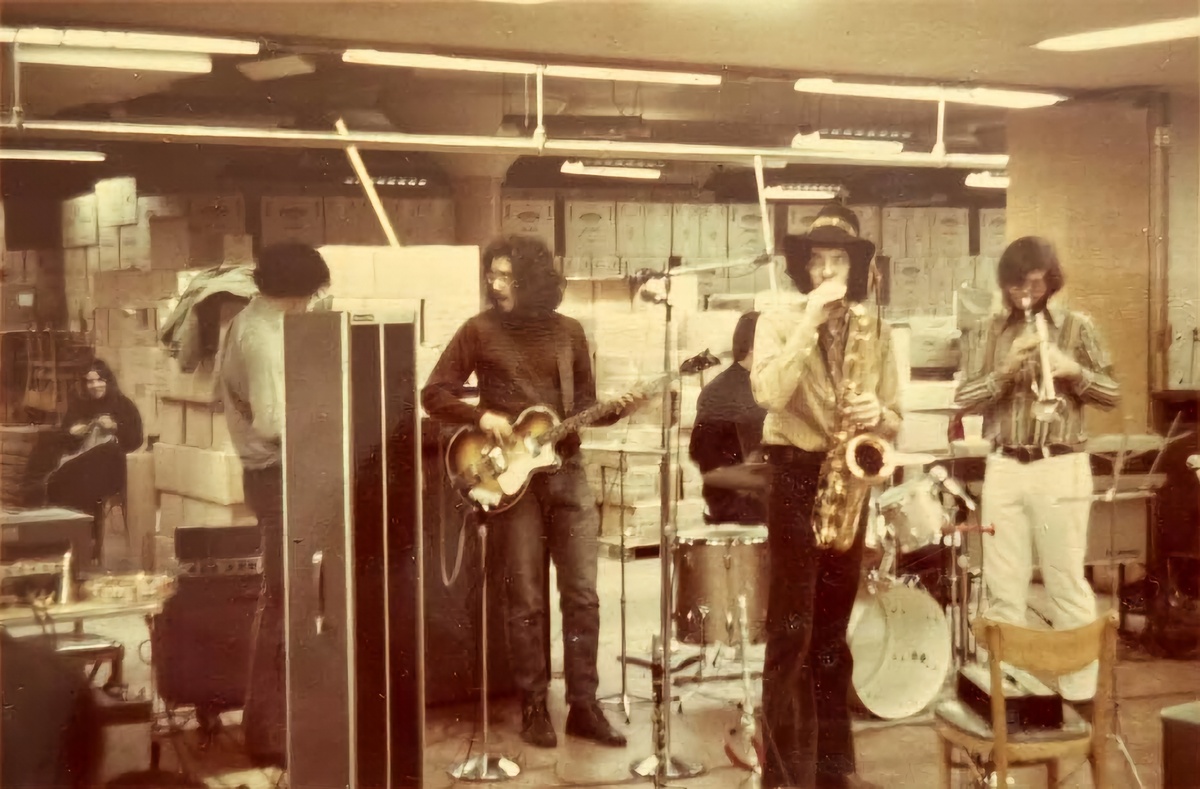
Can you elaborate on the formation of McLuhan?
In 1971, I co-founded McLuhan with my friend Paul, our woodwind player, who was also my next-door neighbor. We met at the University of Illinois at Chicago, where we both attended school. Paul’s old show band was breaking up, and with our trumpet player Dave Wright, we decided to try something new and experimental. Dave wrote three of the four songs on our album.
We played local clubs and eventually landed a recording contract with Brunswick Records. Our album, McLuhan Anomaly, was released in 1972. The engineer on the album was Bruce Swedian, who later went on to work on Michael Jackson’s ‘Thriller’ – a true genius. Unfortunately, the band broke up shortly after college, but our album remained relatively unknown until it gained popularity on YouTube in recent years. To date, it has garnered over 100,000 views.
Dave Wright, a trumpet player, was interested in the Canadian philosopher Marshall McLuhan and his concept “The Medium is the Message.” Our band, which was a mix of media, incorporated slides and films into our performances. We drew inspiration from experimental progressive rock bands like Frank Zappa and King Crimson. In fact, my next-door neighbor, Paul Cohn, who was also a musician, would often join me in my basement to practice and jam.
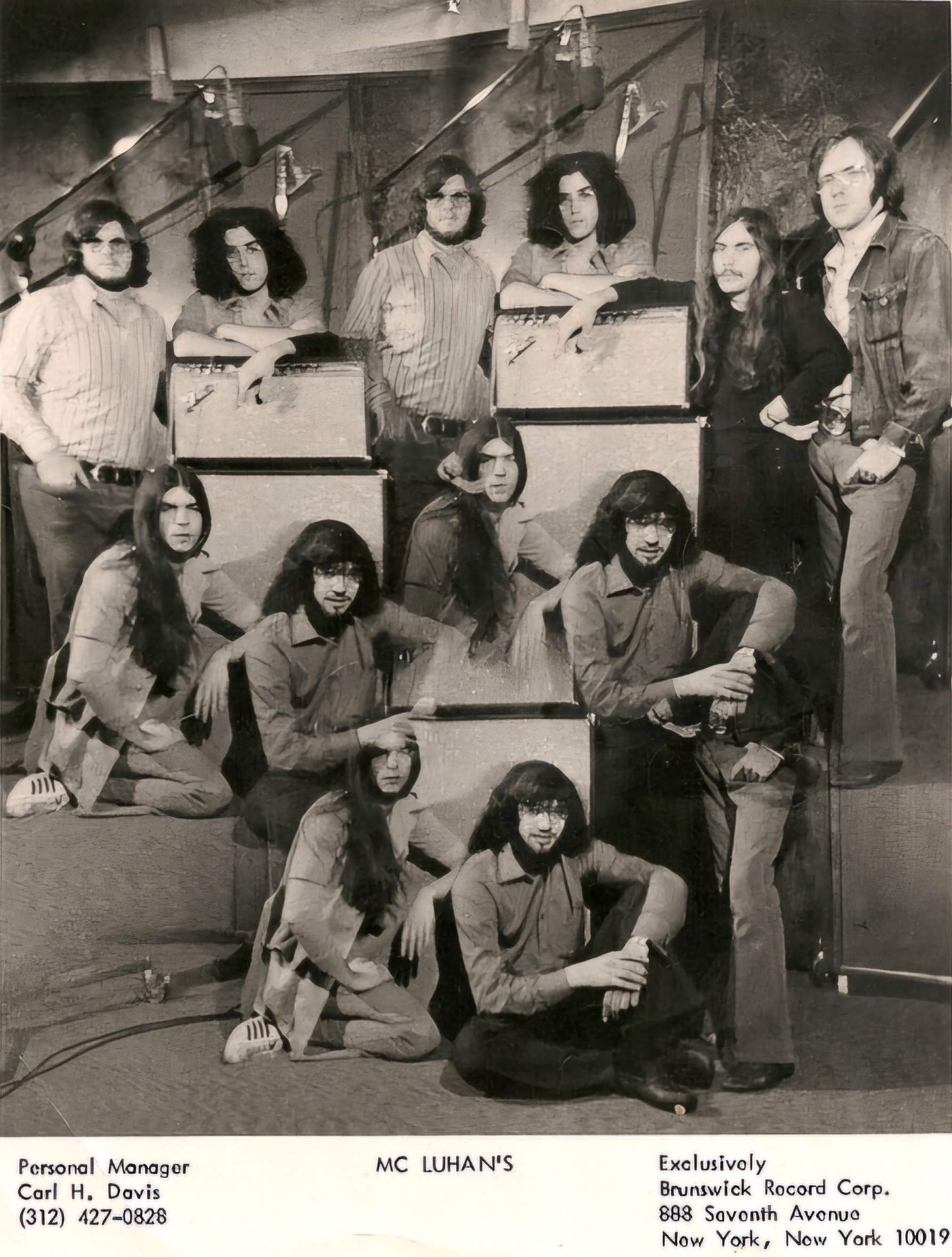
The original six members of our band were me, Neal Rosner, Dave Wright, Paul Cohn, Marvin Kraut, Stoney Phillips, and John Mahoney. Later, we added new members: Mitch Markus, Bart Coyle, Luke Meyer, and Tom Tojza.
We played gigs in Chicago, including a regular spot on Mondays at Wisefools Pub on Lincoln Avenue. It was at one of these shows that Brunswick Records discovered us and wanted to sign us as their white crossover band, similar to Rare Earth. However, we didn’t fit the mold of an R&B band, as we weren’t funky by any means.
We recorded our album at Brunswick Studios on South Michigan Avenue in Chicago. The brilliant engineer and co-producer was Bruce Swedian. We spent only three days in the studio.
Some of our songs were inspired by classic horror movies. For example, ‘Monster Bride’ was inspired by the Bride of Frankenstein. ‘Spiders’ was written by Marvin Kraut and combines elements of Dixieland and Klezmer music. ‘Witches Song’ features polyrhythms and showcases great flute and trumpet playing. It was inspired by the McCarthy era and the 1950s.
Our album ‘Brief Message’ is a musical suite based on the philosophy of Marshall McLuhan, which explores themes such as the garden, assembly line, and electric man.
One of the craziest gigs we ever played was a benefit for a Blind School at the LightHouse for the Blind. As we were a mixed media band, heavily focused on slides and films, we didn’t quite connect with our audience. Needless to say, it wasn’t a huge success.
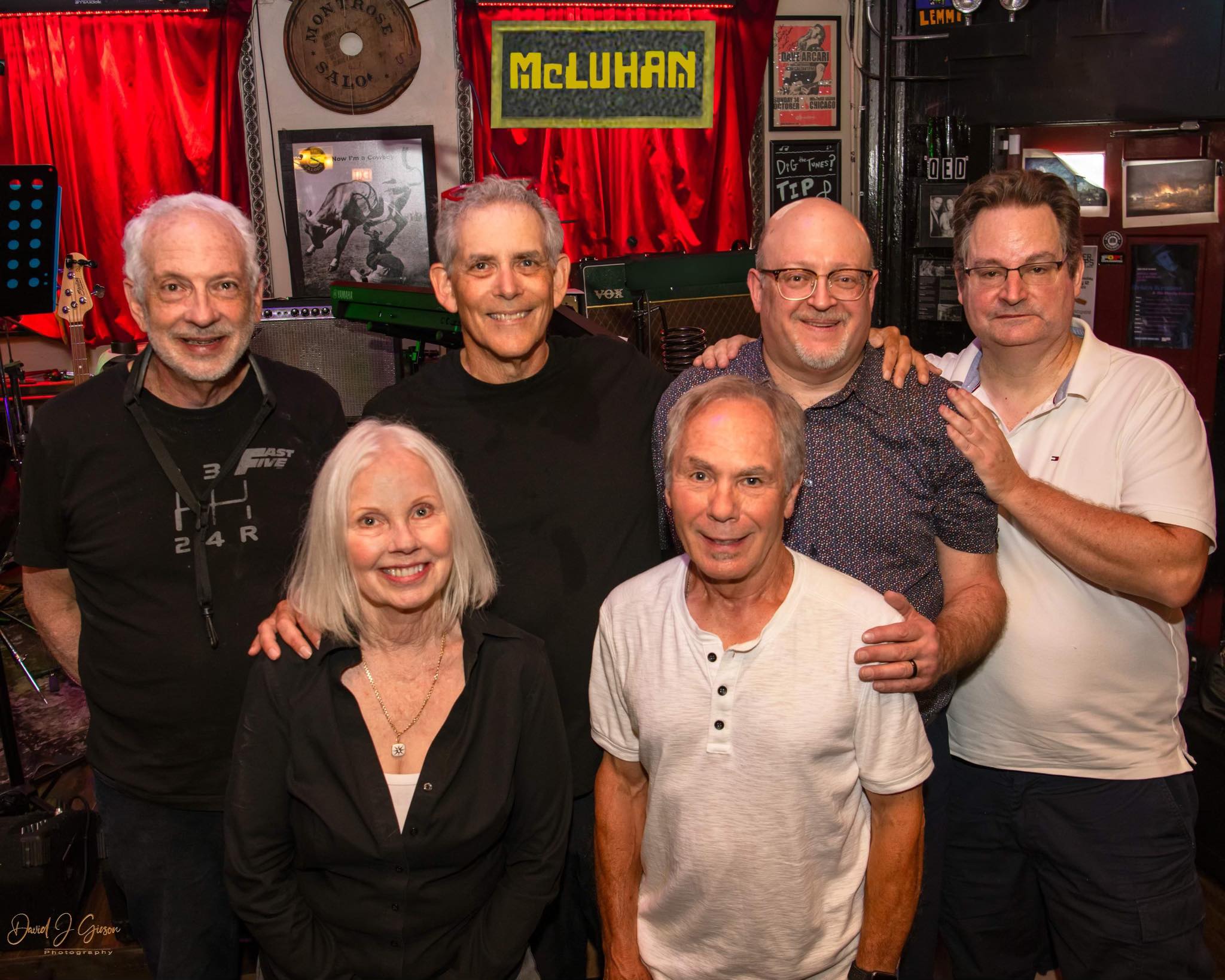
What followed?
Throughout my life, I’ve faced various challenges, including medical school, marriage, children, and eventually, divorce. However, music has always been a constant presence in my life. It wasn’t until later in life that I discovered my true musical voice. I’ve released two albums so far, titled ‘Love Isn’t the Answer’ and ‘Kentucky’.
Klemen Breznikar
Neal Rosner Facebook

